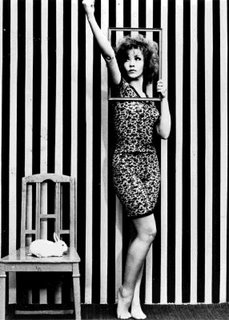 Hospital * Frederick Wiseman * 1970
Hospital * Frederick Wiseman * 1970
Frederick Wiseman’s vast body of work spans three decades, an important compiling of documents concerning various American institutions—high schools, the army, hospitals, welfare, and so on—which, unfortunately, has rarely been seen by the public, as Wiseman’s documentaries are only available through his distributor, Zipporah Films. Thus, one has to be lucky enough to chance upon a PBS or film society screening in order to see them, as I did.
Wiseman’s 1970 film, Hospital, depicts a cross-sampling of the daily activities of the Metropolitan Hospital in Manhattan. While each vignette is depressing in its own way, it doesn’t appear that the predicaments in which the patients find themselves have resulted from neglect on behalf of the individual hospital staff members, who, for the most part, seem to genuinely want to help the patients but are restricted by greater sociological and institutional factors. A doctor voices his official complaint concerning a woman who was improperly transferred from another hospital, her life put in jeopardy, which he has apparently done many times, though no improvement has been achieved. A group of nurses try to determine what to do about the baby who fell 15 feet out a window because no one was watching him, the matter further complicated by his family’s refusal to pick him up (one particularly concerned nurse wants to put him up for the night, while an older nurse whispers “you don’t want to get involved in something like this.”) A doctor struggles to convince a man who has sustained a head injury to receive further medical care, but he won’t listen to reason because there is no one at home to take care of his children. It’s clearly the system that’s at fault, i.e. inadequate health insurance, not enough available beds, a lack of communication, and all the other bureaucratic bullshit that is endemic to such institutions.
Wiseman takes a naturalistic approach to filmmaking, often referred to as “cinema verite,” avoiding the flashy accoutrements that other documentarians fall prone to. There is no voiceover narration, no music, just a string of scenes edited together to portray the scope of activities occurring inside a hospital—“pure voyeurism,” as it is described in The Boston Phoenix. This style is what I especially liked about the film; the jokes, and tragedies, come through in the editing.
Wiseman masterfully edits his films, weaving together a narrative, a story, out of the hours of footage that has been shot. In Hospital, there is a dramatic structure, though perhaps not a conventional one; there is no distinct rising action, denouement, or conclusion, and the only suspense occurs within each individual scene. The film ends with a shot of the hospital itself, slowly panning out to the highway running by it; we've been introduced to a small sampling of the characters within it, and now here is the main character, in a way a living organism in itself.
For me, the film's most memorable scene involves the young man who took a pill from some guy in the park and is given ipecac in an attempt to purge it from his system. He incessantly moans, “I don’t wanna die,” even as the doctor repeatedly assures him that he'll be fine, abruptly sitting up in bed and uttering phrases like, “I just feel so lost.” He eventually pukes up more than you'd imagine could fit in his stomach, very theatrically and exaggeratedly, spewing it all over the place. He then remarks that perhaps he should move back in with his parents in Minnesota, because he's studying art in New York but "you can't do anything with art." This scene generated a significant amount of laughter from the audience, though I found myself feeling a little guilty in doing so. But his look of intense confusion, his ridiculous actions, coupled with the doctor's patient yet deadpan demeanor—“Nurse, give me 10 ccs of ipecac…better make it 20”—are too amusing not to provoke such a reaction. Yet it somehow feels unsettling that we’re made to laugh at him, as, though his situation is not life-threatening, it’s probably a terrifying experience.
Many of Wiseman's films raise such ethical questions: is it acceptable to film people in these intimate situations? Are they in the right frame of mind to give consent? Are they pressured to give consent? I'm not sure that I can supply a definitive answer. In a 1998 interview in The Boston Phoenix, Wiseman stated, in reference to his interviewing style, "I try to be friendly, and I hope that I am friendly, but not phony. I try not to convey the impression that we are going to be friends for a long period of time."
One can speculate that the participants don't really understand what they are agreeing to, or that such films are exploitative. But (with noted exceptions) while their vulnerabilities are aired for generations of strangers, this documentation enables us to feel compassion for them, making us aware of a set of difficulties and struggles we might never have considered. On the whole, Wiseman's films supply an essential record of a largely overlooked history.





